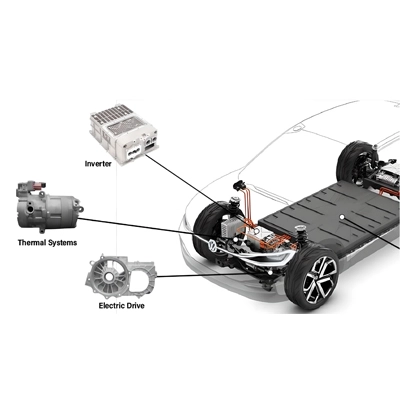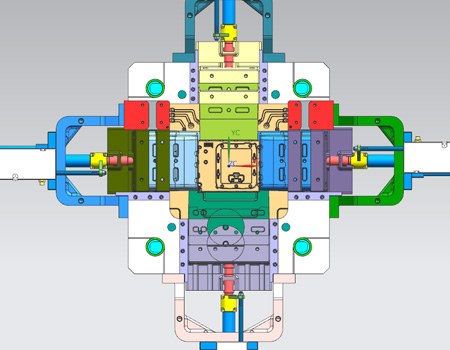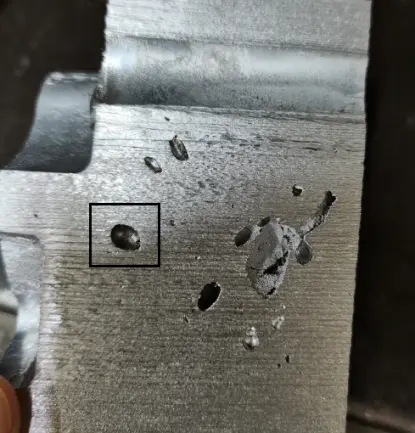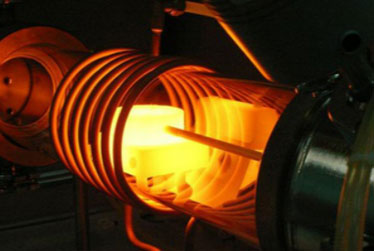

The automotive industry is constantly evolving, with manufacturers always seeking ways to improve performance, fuel efficiency, and safety. One essential technology that has contributed significantly to these advancements is aluminum die casting. Known for producing strong, lightweight, and complex parts, aluminum die casting components have become integral to modern vehicle design. Below, we explore the top five applications of aluminum die casting components in the automotive sector.
Aluminum die casting has revolutionized engine block manufacturing, allowing for lighter engines that still offer high performance and durability. Traditional cast iron engines, while durable, are significantly heavier, which can negatively impact fuel efficiency. Aluminum die-cast engine blocks provide a better balance of strength and weight, which translates into better fuel economy and easier handling. Additionally, aluminum's superior heat conductivity allows engines to cool faster, which is crucial for maintaining optimal engine temperature and reducing wear over time.
Benefits:
Enhanced fuel efficiency due to reduced weight.
Improved heat dissipation, aiding in better engine performance.
Increased engine durability due to superior material properties.
Transmission housings are responsible for containing the entire transmission mechanism, making durability and heat resistance essential characteristics. Aluminum die casting components are ideal for transmission housings because of their strength-to-weight ratio and corrosion resistance. The lightweight nature of aluminum also reduces the overall weight of the transmission, which benefits the vehicle's efficiency. Furthermore, the accuracy of die-cast aluminum helps ensure a perfect fit and minimal need for secondary machining, making the manufacturing process faster and more cost-effective.
Benefits:
High structural integrity, able to withstand stress.
Lightweight design aids fuel efficiency.
Corrosion-resistant properties enhance longevity.
As electric vehicles (EVs) become more popular, the need for lightweight and durable EV battery housings has grown. Aluminum die casting plays a critical role in developing battery enclosures that are both protective and lightweight, helping EVs maximize their range. Aluminum die-cast housings provide strong protection against impact while offering excellent thermal conductivity to help dissipate heat generated by batteries. This ensures the safety and longevity of the battery, while also improving the EV's overall efficiency.
Benefits:
Lightweight housing extends battery range.
Strong impact resistance ensures safety.
Enhanced thermal conductivity aids in efficient heat management.
Suspension systems are vital for vehicle stability and comfort, and aluminum die casting has become a preferred method for producing these parts due to its high strength-to-weight ratio. Components like control arms, knuckles, and shock absorber mounts are increasingly being made from die-cast aluminum. These lightweight parts help improve fuel efficiency, while their durability ensures that they withstand the constant wear and tear of road travel. Die-cast aluminum also allows for more intricate designs, which improves the performance of the suspension system.
Benefits:
Reduced weight improves fuel economy and handling.
Durability allows for prolonged part lifespan.
Complex designs possible for enhanced suspension performance.
Brackets and mounts may seem like minor parts, but they are crucial for securing various systems, such as engines, transmissions, and exhausts, to the vehicle's frame. These components require precision and high strength, making aluminum die casting an ideal choice. Aluminum die-cast brackets and mounts are lightweight and resist corrosion, making them suitable for use in high-stress areas of the vehicle. They help reduce the vehicle's overall weight while providing reliable, long-lasting performance.
Benefits:
Precision casting for accurate part fit.
Lightweight design reduces vehicle weight.
Corrosion-resistant, ensuring long-term reliability.
Aluminum die casting has proven to be an invaluable manufacturing process in the automotive industry. The unique properties of aluminum die casting components—lightweight, high strength, durability, and corrosion resistance—have made it possible to create more fuel-efficient, safer, and more powerful vehicles. From engine blocks to EV battery housings, aluminum die casting continues to play a transformative role in automotive innovation, paving the way for the future of sustainable, high-performance vehicles.
By embracing aluminum die casting, automakers can achieve cost-effective manufacturing while meeting the demand for increasingly efficient and advanced vehicles.


